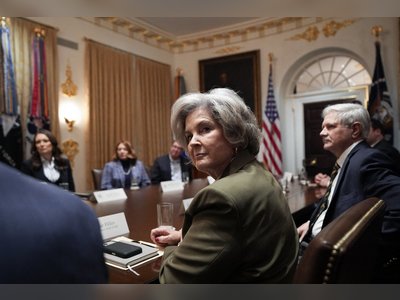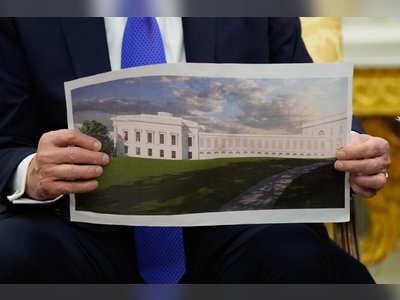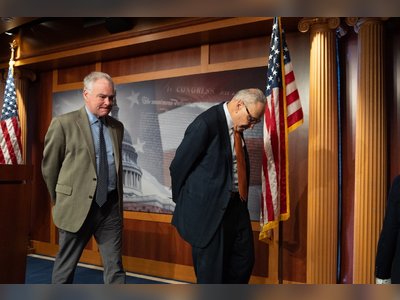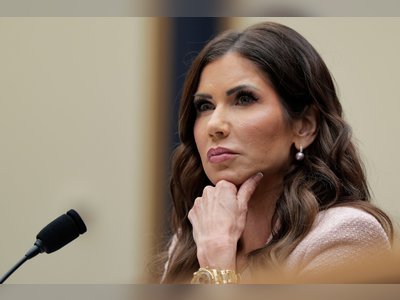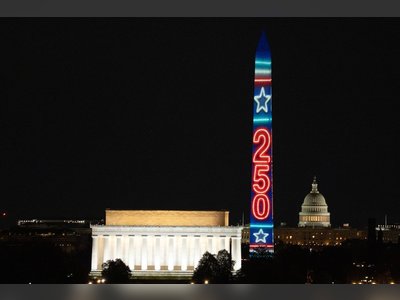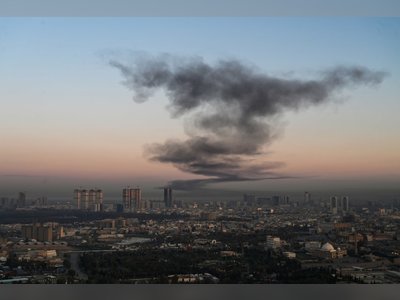South Korea's Martial Law Saga: A Closer Look at Political Repercussions
A brief declaration sparks national intrigue as political tensions flare in Seoul.
In an extraordinary turn of events, South Korea witnessed a dramatic spike in online searches for the phrase 'martial law.' This surge occurred after President Yoon Suk Yeol's fleeting declaration of martial law on Tuesday, which captured the nation’s full attention.
According to popular demand metrics, the term's search volume eclipsed two million queries within twenty-four hours, marking a staggering increase of over one thousand percent from the previous day.
This unprecedented interest was not confined to hypothetical curiosity.
The nation's focus on political stability was underscored by the prominence of related searches such as 'currency exchange rate' and 'Kim Yong-hyun,' the defense minister allegedly at the epicenter of the martial law proposition.
President Yoon's declaration, albeit brief, was announced late Tuesday night as a response to what he described as 'anti-state activities' orchestrated by the opposition, which he claimed had incapacitated governmental operations.
However, the intervention was averted, primarily due to swift action by the National Assembly, which voted decisively to nullify the declaration.
This legislative backlash prompted the rapid reinstatement of civilian rule and calmed burgeoning public unease.
The immediate aftermath has left South Korea navigating a complex web of political and social ramifications.
Substantial traffic overwhelmed Naver, the country’s largest internet portal, reflecting the public's eagerness for information and clarity amid uncertainty.
Though briefly disrupted, the platform's services were quickly restored, highlighting the nation's technological readiness even amidst political upheavals.
In response to the escalating tension, President Yoon convened an urgent meeting with Prime Minister Han Duck-soo and the leadership of the ruling People Power Party.
Their discourse focused on strategic responses to the impeachment motion lodged by opposition factions—an act expressing significant disapproval of Yoon's temporary imposition of martial rule.
Significantly, the meeting glossed over potential discussions regarding President Yoon's future with the ruling party, unfolding against a backdrop of political discord.
The opposition, led by the Democratic Party and supported by five other minor parties, moved swiftly post-rejection, preparing to advance the impeachment motion to a parliamentary plenary session as early as Thursday, anticipating a possible Friday vote.
These developments place South Korea at a political crossroads, emphasizing the fragility of its democratic institutions and the volatility inherent in its current political landscape.
As the country prepares for yet another political test with the impending parliamentary vote, the profound implications of these events are likely to resonate beyond its borders.
According to popular demand metrics, the term's search volume eclipsed two million queries within twenty-four hours, marking a staggering increase of over one thousand percent from the previous day.
This unprecedented interest was not confined to hypothetical curiosity.
The nation's focus on political stability was underscored by the prominence of related searches such as 'currency exchange rate' and 'Kim Yong-hyun,' the defense minister allegedly at the epicenter of the martial law proposition.
President Yoon's declaration, albeit brief, was announced late Tuesday night as a response to what he described as 'anti-state activities' orchestrated by the opposition, which he claimed had incapacitated governmental operations.
However, the intervention was averted, primarily due to swift action by the National Assembly, which voted decisively to nullify the declaration.
This legislative backlash prompted the rapid reinstatement of civilian rule and calmed burgeoning public unease.
The immediate aftermath has left South Korea navigating a complex web of political and social ramifications.
Substantial traffic overwhelmed Naver, the country’s largest internet portal, reflecting the public's eagerness for information and clarity amid uncertainty.
Though briefly disrupted, the platform's services were quickly restored, highlighting the nation's technological readiness even amidst political upheavals.
In response to the escalating tension, President Yoon convened an urgent meeting with Prime Minister Han Duck-soo and the leadership of the ruling People Power Party.
Their discourse focused on strategic responses to the impeachment motion lodged by opposition factions—an act expressing significant disapproval of Yoon's temporary imposition of martial rule.
Significantly, the meeting glossed over potential discussions regarding President Yoon's future with the ruling party, unfolding against a backdrop of political discord.
The opposition, led by the Democratic Party and supported by five other minor parties, moved swiftly post-rejection, preparing to advance the impeachment motion to a parliamentary plenary session as early as Thursday, anticipating a possible Friday vote.
These developments place South Korea at a political crossroads, emphasizing the fragility of its democratic institutions and the volatility inherent in its current political landscape.
As the country prepares for yet another political test with the impending parliamentary vote, the profound implications of these events are likely to resonate beyond its borders.


